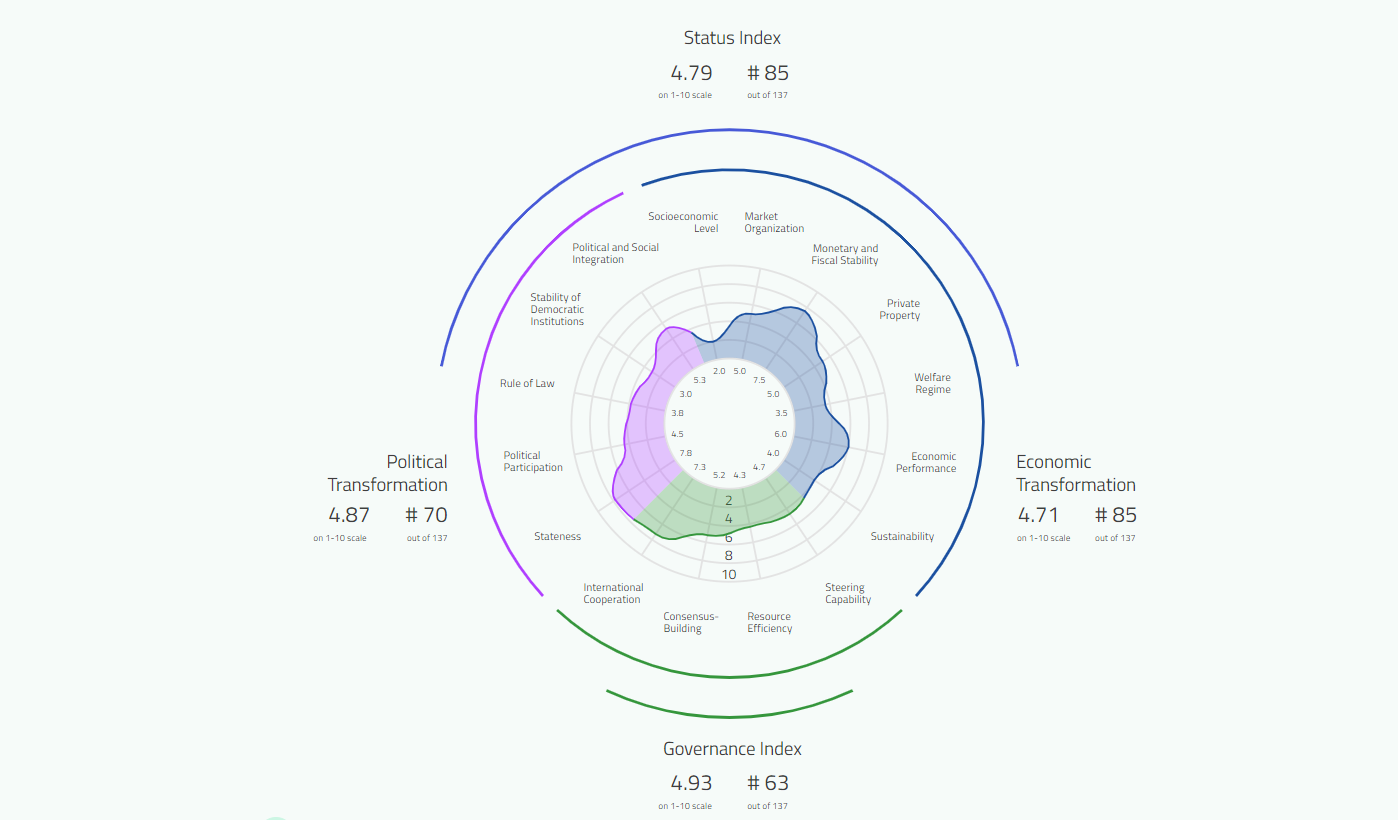Resource information
The Gnassingbé clan has ruled the country since 1967. Throughout the survey period, demands for political change initiated by institutional and electoral reforms were a major issue of contention between the government and the challengers of the Gnassingbé regime. An alliance of opposition parties and civil society groups organized peaceful demonstrations in opposition to the regime. These demonstrations were often violently suppressed. Civil society organizations and representatives of the Christian church supported the opposition’s demands.
Controversial constitutional and institutional reforms voted in May 2019 in parliament re-introduced a presidential two-term limit. However, the term limit does not apply retroactively, permitting the incumbent, Gnassingbé, to stand for another two terms. The opposition had fought for a term limit that would take Gnassingbé’s current and previous terms into account.
The first local elections in more than 30 years were finally held on June 30, 2019 and resulted in the victory of the ruling party. The opposition was severely disappointed, not least because the local elected officials would be entitled to elect two-thirds of the future Senate. Shortly afterwards, in February 2020, the president also won the disputed presidential elections and even consolidated his power, assisted by the loyal army and security services. The outbreak of the COVID-19 pandemic in Togo in April and the subsequent economic recession may have contributed to limit popular protest against the Gnassingbé regime.
The human rights record of the government has improved but remains poor. Despite undeniable improvements to the framework and appearance of the regime’s key institutions during the review period, democracy remains far from complete. However, the international community, notably Togo’s African peers, the African Union (AU) and Economic Community of West African States (ECOWAS), followed a laissez faire approach in the interests of regional stability and their national interests in dealing with Togo.
The economy dropped into recession in 2020 due to the worldwide negative economic effects of the COVID-19 crisis. The informal sector still dominates the economy. Economic freedom remained with the overall status “mostly unfree.” The government tried to counteract this by continuing public investment in infrastructure (e.g., roads, harbor) and increases in agricultural productivity. Export crops had been the key drivers of economic growth. Positive growth was overshadowed by increasing interpersonal and regional inequality, as well as an increase in extreme poverty. Moreover, money-laundering, illegal money transfers and trafficking grew alarmingly. Nonetheless, the business climate improved considerably. Though the World Bank still defines Togo as low-income, fragile state, the government aims to achieve the status of a developing economy.
The overall effects of the COVID-19 pandemic on democratization and governance remained negligible, since the majority of the population viewed the government’s response to the crisis as largely satisfactory. Moreover, the economic impact of the COVID-19 crisis overshadowed the opposition’s simmering discontent. Growth remained vulnerable to external shocks like the COVID-19 pandemic and its impact on the global economy. Repercussions were felt on the domestic labor market and social security, particularly for the poor working in the informal sector.


